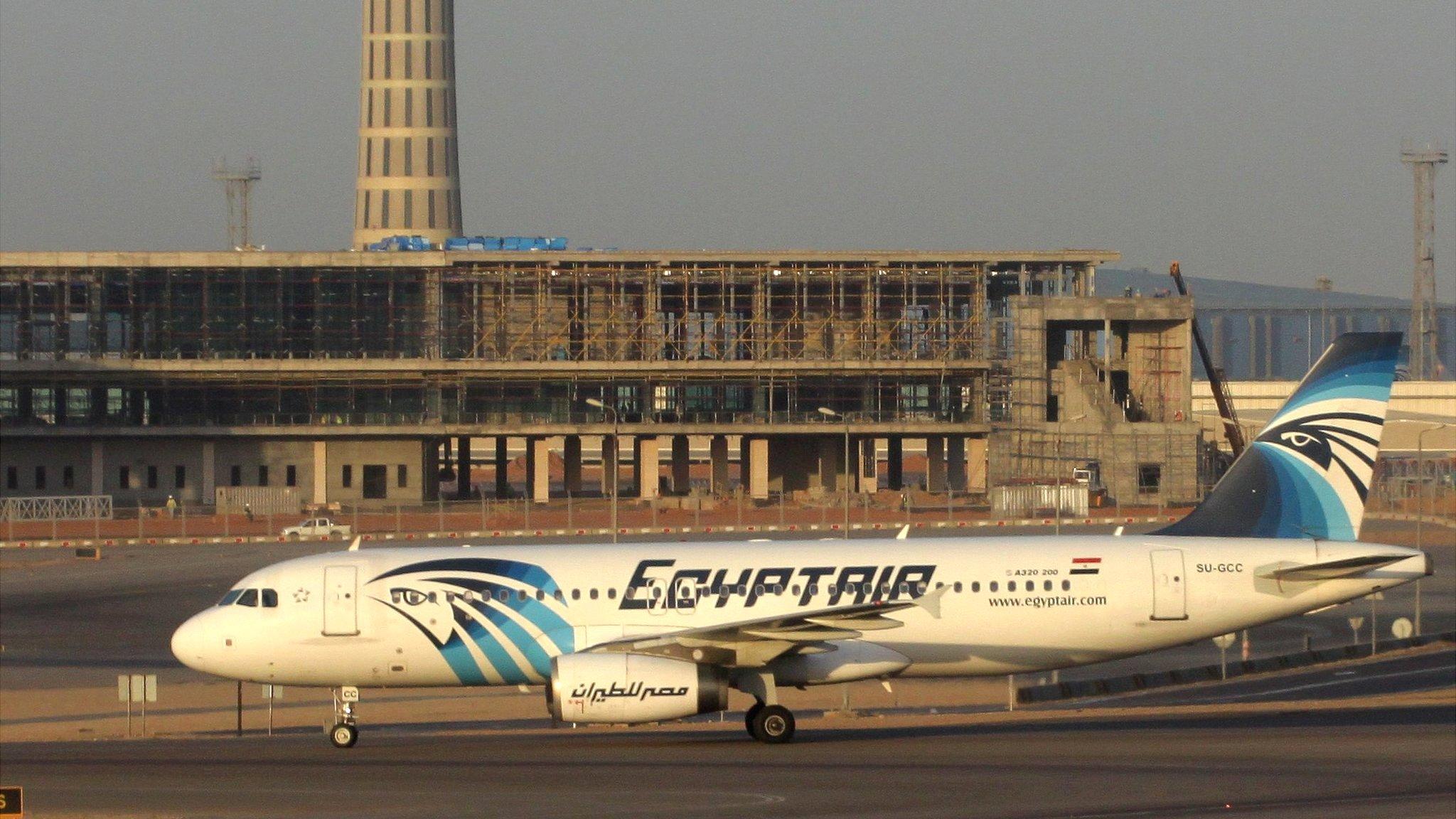EgyptAir flight MS804: Welsh man Richard Osman on board plane
- Published

A Welsh-born geologist was among the 66 people on board the crashed EgyptAir flight.
Flight MS804 disappeared from radar overnight over the Mediterranean after making two sharp turns and plunging into the sea.
Passenger Richard Osman, 40, grew up in Carmarthen but is thought to have recently moved to Jersey.
Greek and Egyptian officials have given conflicting accounts of debris found near the Greek island of Karpathos.
Father-of-two Mr Osman is the eldest of four children of the late Dr Mohamed Fekry Ali Osman and wife Anne.
He has three siblings; Alastair, 35, Phillip, 34, and Anna, 32, who grew up in south Wales after their father moved there from his native Egypt to work as a consultant in ear, nose and throat surgery.
Mr Osman was a pupil at Queen Elizabeth Cambria School in Carmarthen and later studied geology and has a masters from Camborne School of Mines in Cornwall.
He is a mining company executive for Centamin on Mulcaster Street, Jersey, and has previously worked in Australia and Egypt.
His younger brother Alastair Osman described him as a workaholic and a very admirable person who "never deviated from the straight path".
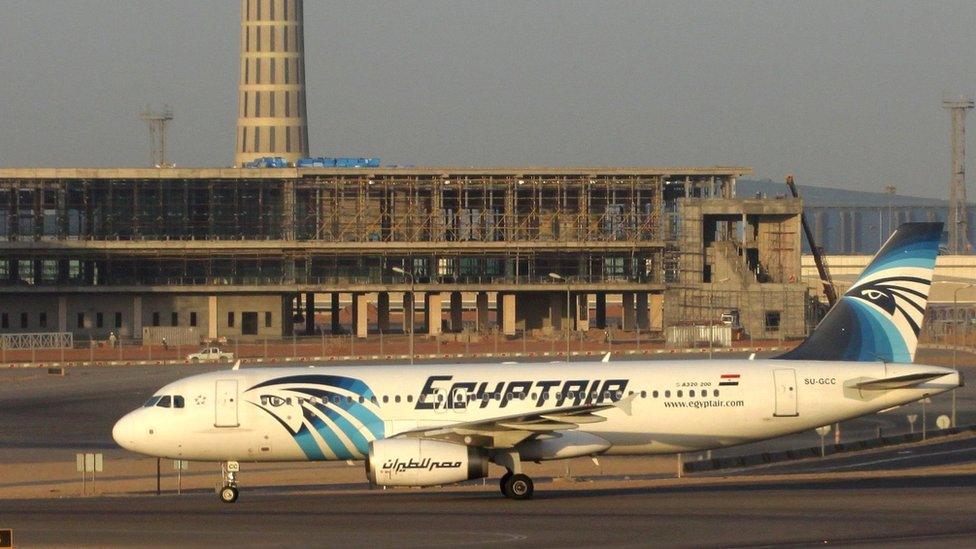
The plane, seen here at Cairo airport in 2014, went missing overnight
The flight from Paris to Cairo had 56 passengers, seven crew and three security staff, an official said.
Egypt's civil aviation minister has said the possibility of a terror attack is "stronger" than technical failure.
UK Foreign Secretary Philip Hammond said a British passport holder had boarded the plane in Paris.
The passenger's relatives were being supported by Foreign Office staff and offers of help had been made to the Egyptian authorities, Mr Hammond added.
He refused to be drawn on the causes of the crash, saying it was "far too early to speculate".
UK Foreign Secretary Philip Hammond: "We know that there's a British passport holder onboard... and we're providing support to the family"
EgyptAir said passengers on board also included 30 Egyptians, 15 French citizens, two Iraqis, as well as individuals from Belgium, Kuwait, Saudi Arabia, Canada, Algeria, Sudan, Chad and Portugal. There were two infants and one child on board.
A major search and rescue operation is under way in the sea near Karpathos Island, around 50 miles east of Crete.
Egyptian aviation officials confirmed wreckage of the plane has been found. But Greece's lead air accident investigator Athanasios Binis later said it was not from the Airbus A320.
Greek state broadcaster ERT says two "orange-coloured objects" have been found, while an unnamed Greek military official told Associated Press orange objects had been spotted.
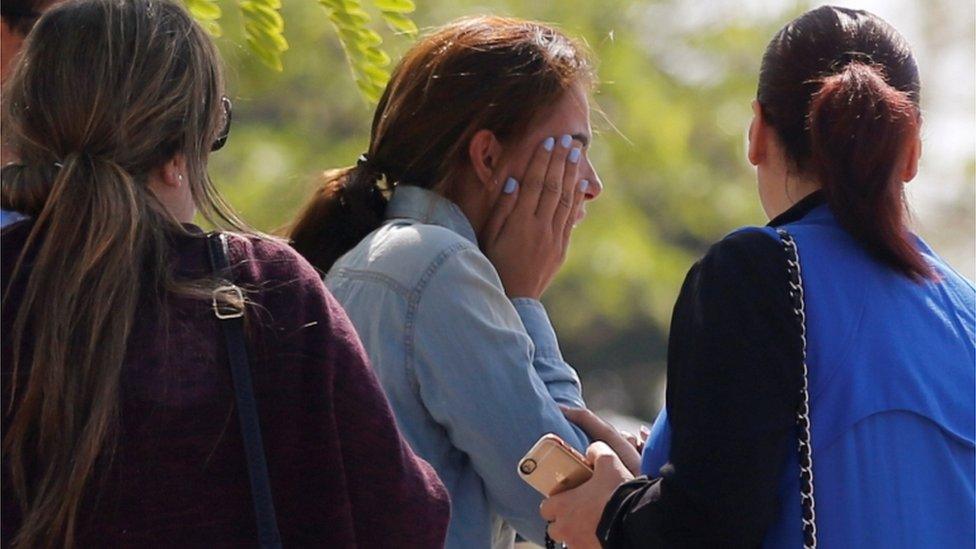
Relatives and friends of passengers are waiting outside the EgyptAir in-flight service building at Cairo Airport for news
The Airbus A320 left Paris' Charles de Gaulle airport at 23:09 local time on Wednesday (22:09 BST) and was scheduled to arrive in the Egyptian capital soon after 03:15 local time on Thursday.
Greece's defence minister said that soon after entering Egyptian airspace, the plane made "sharp turns" and plunged before dropping off the radar.
It had been flying at 37,000ft (11,300m) over the eastern Mediterranean and had been due to land in 30 minutes
Egypt and Greece have sent ships and aircraft to search for wreckage.
'Night vision'
A British naval support ship - RFA Lyme Bay - is expected to arrive at the last known location of the plane on Thursday evening and will begin searching along the flight route, Downing Street said.
A C-130 Hercules aircraft from an RAF base in Cyprus, equipped with radar, high-power binoculars and night vision, is also being deployed to join the search, the spokesman added.
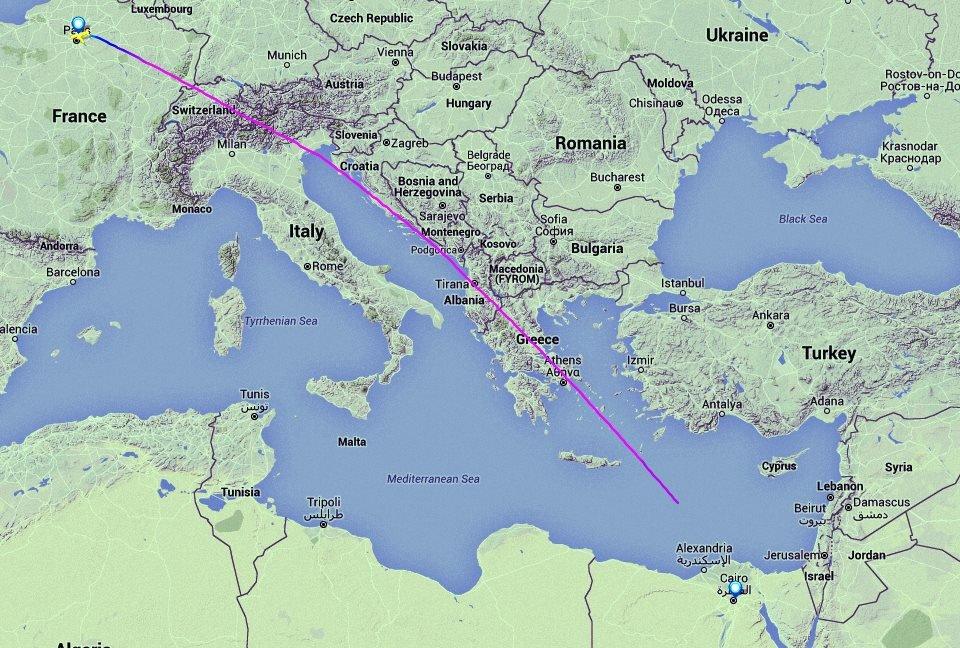
Flight tracker website Flightradar24 has shown a map of the flight's path
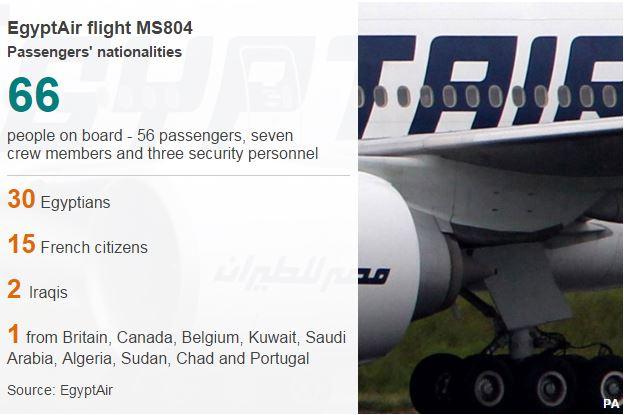
EgyptAir has set up a helpline for passengers' relatives which can be reached on +202 25989320 from outside Egypt or on any mobile phone.
Those in Egypt can call 0800 77770000 from landlines.
EgyptAir said it was providing a facility for passengers' families near Cairo Airport.
The French Foreign Ministry has also activated a crisis number on +33 (0)1 43 17 55 95.
- Published19 May 2016
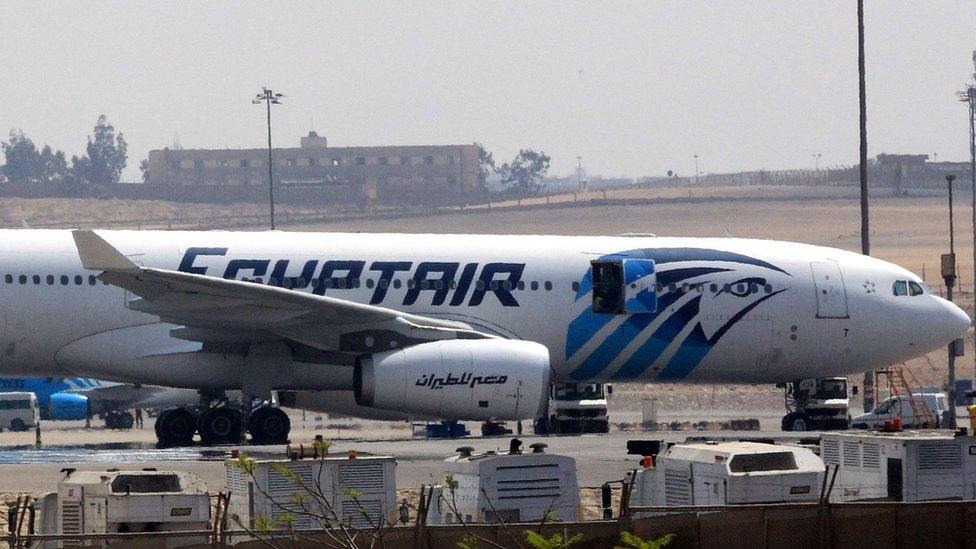
- Published19 May 2016
